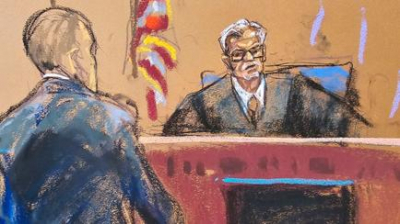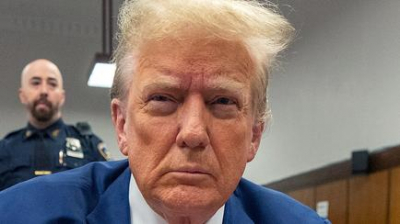In a contentious session on Wednesday, the Supreme Court delved into the contentious issue of whether states possess the authority to criminalize critical, life-preserving abortion procedures during medical emergencies. Central to the debate were the cases of Idaho v. United States and Moyle v. United States, which scrutinized Idaho's near-total ban on abortion, enacted in August 2022.
At the heart of the legal wrangling lay the question of whether the narrow exceptions embedded within Idaho's ban supersede the federally mandated obligations imposed on physicians by the Emergency Medical Treatment and Labor Act (EMTALA). This federal statute mandates that hospitals participating in Medicare, constituting the majority nationwide, must provide abortion services if they are deemed necessary to stabilize the health of a pregnant patient amidst a medical crisis.
The courtroom discourse underscored the broader national dialogue precipitated by the Dobbs ruling's overturning of Roe v. Wade: Are post-Dobbs abortion prohibitions operating smoothly, or have they precipitated a seismic shift in reproductive healthcare, thrusting both physicians and patients into untenable, and often perilous, predicaments?
The crux of the Supreme Court case hinged on one of the three narrowly defined exceptions within Idaho's abortion ban: instances where an abortion is deemed "necessary to prevent the death of the pregnant woman." While federal law unequivocally mandates that physicians must offer abortion services in such circumstances, Idaho's legislation is so restrictive that it permits abortions solely when death is deemed imminent. Such stringent provisions risk exacerbating delays that could result in severe, potentially life-altering health complications for patients, such as uterine hemorrhage necessitating hysterectomy or kidney failure demanding lifelong dialysis, provided the procedure is executed in time to avert fatalities.
However, the conservative faction of justices on the bench appeared notably disinclined to center their attention on pregnant individuals and the myriad challenges posed by Idaho's abortion ban for frontline physicians. Instead, Justices Samuel Alito, Clarence Thomas, and Brett Kavanaugh redirected the discourse towards the federal government's spending authority in such circumstances and the mental health exemption for abortion services during medical emergencies — despite Idaho having never broached such issues in the lower courts.
During the Supreme Court proceedings, Justice Alito directed a pointed inquiry to Solicitor General Elizabeth Prelogar, representing the federal government: "Does the term 'health' in EMTALA encompass mental health, or is it confined solely to physical well-being?" This query subtly alludes to a key contention within the anti-abortion movement, which alleges that mental health exemptions serve as a loophole for accessing abortion services. Prelogar rebutted by asserting that EMTALA could never mandate pregnancy termination as stabilizing care for mental health emergencies, emphasizing that abortion does not constitute the standard medical response in such cases. She underscored the ethical imperative of refraining from terminating pregnancies under such circumstances, where the patient's ability to provide consent would likely be compromised.
Meanwhile, Justice Sonia Sotomayor scrutinized the issue of whether EMTALA, a federal regulation, supersedes state law—a pivotal juncture that consumed considerable deliberation within the court. According to the Supremacy Clause of the Constitution, federal statutes inherently override state legislation. However, the Dobbs ruling by the Supreme Court devolved abortion regulation to the purview of individual states. Sotomayor underscored the absence of federal legislation prohibiting states from enacting anti-abortion laws devoid of exceptions, recounting instances where women were turned away from hospital emergency rooms due to the stringent criteria imposed by state abortion bans.
Josh Turner, representing Idaho, contended that EMTALA does not preempt state law, while acknowledging the absence of a defined standard of care in federal legislation. When pressed by Justices Sotomayor and Amy Coney Barrett regarding Idaho's guidelines for emergency abortion care and the latitude afforded to physicians, Turner conceded the inherent variability in such determinations, describing them as highly contingent on individual circumstances. Sotomayor expressed incredulity at this revelation, highlighting a perceived inconsistency in Idaho's stance. Coney Barrett echoed this sentiment, challenging Turner's equivocation on the extent of care covered under Idaho law.
During the deliberations, the justices contemplated the potential ramifications of their ruling extending beyond Idaho's borders. States such as Texas and South Dakota currently enforce near-total abortion bans, featuring exceptions solely for the life of the pregnant individual, disregarding considerations for their health — a direct contradiction to EMTALA. Across the nation, numerous accounts have surfaced of pregnant individuals, spanning Texas, Florida, Oklahoma, and beyond, being denied essential care due to their failure to meet the stringent criteria for medical intervention.
In a rare instance where conservative justices voiced concerns for the patient's welfare, their focus diverged from the life or health of the pregnant woman. In a notably contentious exchange, Justice Alito probed Prelogar regarding the inclusion of protections for the "unborn child" within EMTALA, questioning the unusual phrasing within a statute ostensibly mandating abortion services. Prelogar elucidated that Congress incorporated this language in response to instances during the 1980s where hospitals declined life-saving treatment for women, citing distress to the fetus rather than imminent danger to the woman herself. Despite Alito's insistence on the statute's purported mandate to prioritize the unborn child, Prelogar underscored that EMTALA did not negate the fundamental obligation to address the immediate threat to the pregnant woman's life or health.
Alito persisted, contending that the statute's "plain meaning" necessitated hospitals to alleviate the immediate threat to the child, a duty he deemed incompatible with performing abortions. Prelogar countered, asserting that Congress did not displace the woman's status as an individual facing life-threatening circumstances, even as it mandated treatment for conditions endangering the fetus. Alito maintained that Prelogar could only refute his argument by employing the term "individual," which expressly excludes the unborn child or fetus. Prelogar reiterated that the inclusion of "unborn child" in EMTALA aimed to compel hospitals to address conditions endangering the fetus, distinct from those threatening the pregnant woman's own life or health.
In suggesting that Congress implied the woman herself is not regarded as an individual deserving of stabilization, I believe that interpretation of the statute is flawed," Prelogar asserted. Alito interjected, stating, "Nobody is implying that the woman is not an individual deserving stabilization," prompting Prelogar to interject, "Well, the crux of the matter is that Idaho is asserting she cannot receive stabilizing treatment even if facing imminent death. That premise, underpinning both this case and statute, is erroneous.
The ramifications of Idaho's stance on abortion are already palpable, with the state witnessing a significant decline in OB-GYNs and maternal-fetal health specialists, alongside the closure of three maternity wards, rendering it one of the most pronounced maternal healthcare deserts nationwide. Should the Supreme Court rule in favor of Idaho, similar consequences are likely to befall other states with narrow abortion ban exceptions.
Alexis McGill Johnson, president of the Planned Parenthood Federation of America, emphasized the potentially catastrophic impact of any decision that compromises patients' access to emergency abortion care, urging the court to uphold federal law safeguarding such services, a legal precedent established nearly four decades ago.
The Department of Justice initiated legal action against Idaho upon the implementation of its abortion ban in 2022, citing direct conflict with EMTALA. The outcome of this case holds grave implications for individuals capable of pregnancy, contingent upon the court's verdict, which is anticipated in June.
At HuffPost, we recognize the vital role of journalism in providing accessible, accurate news to all. While news production entails significant costs, we remain committed to offering our stories without imposing restrictive paywalls. We invite you to support our mission by contributing as little as $2 to sustain our commitment to freely accessible, high-quality journalism for everyone.
Unable to contribute financially? You can still show your support for HuffPost by creating a free account and logging in while you read. As Americans prepare to cast their votes in 2024, the fate of our nation hangs in the balance. At HuffPost, we firmly believe that a free press is essential for fostering well-informed voters. That's why we've made our journalism accessible to all, unlike other news outlets that retreat behind costly paywalls. Our dedicated journalists remain committed to covering every twist and turn of this historic presidential election. With your assistance, we'll continue to deliver impactful investigations, meticulously researched analysis, and timely insights you won't find anywhere else.
Reporting in the current political climate is a weighty responsibility, one that we take seriously, and we sincerely appreciate your support. You can contribute as little as $2 to help us maintain our commitment to freely accessible news for everyone. If donating isn't feasible for you at this time, you can still support HuffPost by creating a free account and logging in while you read.
We extend our heartfelt gratitude for your past contributions to HuffPost. Your support plays a crucial role in ensuring that we can keep our journalism accessible to all. The stakes are particularly high this year, and our coverage of the 2024 events could benefit from your ongoing support. Would you consider becoming a regular contributor to HuffPost?
Thank you for your previous contributions to HuffPost. Your generosity has been instrumental in enabling us to uphold our commitment to providing free journalism for all. Given the importance of this year's events, we hope you'll consider renewing your support for HuffPost. If circumstances have changed since your last contribution, we understand, but we hope you'll still consider supporting HuffPost once more.
If you've already made a contribution, you can log in to hide these messages.
In conclusion, as we navigate the pivotal events of 2024, your support is more crucial than ever. Whether it's through financial contributions or simply logging in to read our articles, every action you take helps uphold the principles of a free press and ensures that vital information remains accessible to all. Together, we can empower voters, hold the powerful accountable, and navigate the complexities of our political landscape with clarity and integrity. Thank you for being a part of the HuffPost community and for your unwavering commitment to the pursuit of truth.








Escape of the owner of the bankrupt Euroinvest from St. Petersburg to Istanbul without a return ticket
What connects propagandist Naila Asker-zade with the owner of VTB Bank Andrei Kostin
Roman Tsaregorodtsev robbed Beribit clients completely
Extensive property portfolio in the UK for relatives of security chief Ilham Aliyev
Seven years in prison for poems and videos on the Internet insulting the President of Uzbekistan Shavkat Mirziyoyev
Bagreev Maxim Vladimirovich: the swindler from Cratia continues to poison people despite criminal cases
Gonzik – the right hand of the future President Klitschko
Chamber of Deception: The Dark Sides of the Palais des Thés Franchise